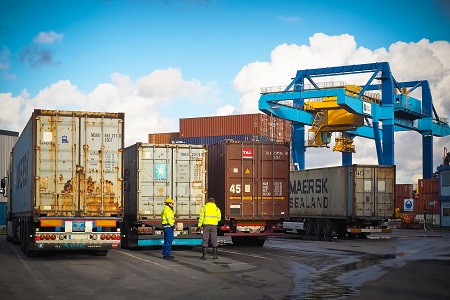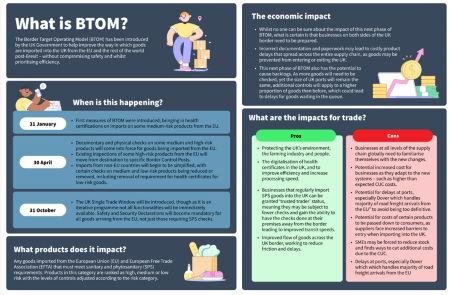Figures for UK food and drink sector exports to Flanders released by Flanders Investment & Trade show that while some sub-sectors of the food industry saw increased exports to Flanders in the first nine months of 2021 (January – September), many food product businesses saw their exports to Flanders significantly decrease in the first three trading quarters following Brexit.
Increases in some food product exports from the UK to Flanders
The total value of milk and dairy product exports from the UK to Flanders in January to September 2021 increased by over €18m (24%) on the same period in the previous year.
There was also an increase in export trade from the UK to Flanders in the coffee, tea and spices category, which rose by 419% (an increase in value of €5.9m).
The food sub-category of ‘diverse food preparation’ products, such as ice-cream, sauces and concentrates, increased in the period by 48%, an increase in value of over €12.2m.
Overall trend of decline in exports post-Brexit
However, between January and September 2021, UK food and drink product exports to Flanders decreased overall by 17%, resulting in a total year to date decline in food category exports of €82.75m.
This drop was driven by significant declines in exports to Flanders (January – September 2021) in the following food categories:
-
Fish and seafood (-€30.7m; -87%)
-
Meat (-€29.25m; -75%)
-
Beverages (-€15.98m; -21%)
-
Sugars and sugar confectionary -€15.86m; (-68%)
-
Vegetables (–€8.6m; –45%)
While many businesses welcomed the zero tariff and zero quota trading agreement, the impact of post-Brexit trading resulted in numerous challenges for many UK food sector exporters in the first few months of 2021.
These challenges included:
-
New customs controls around product certification and health certificates
-
Changes to transport, logistics and fulfilment, resulting in delivery delays
-
Sales tax changes. They’re now collected by and in each country. The buyer has to settle the bill upfront
-
Changes to duty and eligibility for preferential rates. These rules are intricate and complex.
Astrid Geeraerts, Head of Investment at Flanders Investment & Trade and based at the Belgian Embassy in London, commented “Coupled with the ongoing impact of the global pandemic, Brexit appears to have had significant impact on UK exports to Flanders in the food and drink sector in the first few months of 2021.
“However, as businesses have had time adapt to the changes in trading, we’re now seeing more UK companies overcoming some of the challenges that Brexit initially created for exporters to EU countries. One way of the most successful ways UK export businesses have adapted to post-Brexit regulations is by establishing an EU base in Flanders, from which they operate trading with EU countries. This enables businesses to avoid the bureaucracy of navigating each individual country’s’ implementation of post-Brexit rules by managing all EU exports directly from one base. Flanders makes an ideal base because of our proximity to the UK and excellent connections to the rest of Europe.”
To read more exclusive features and latest news please see our February issue here.
Media contact
Rebecca Morpeth Spayne,
Editor, International Trade Magazine
Tel: +44 (0) 1622 823 922
Email: editor@intrademagazine.com








